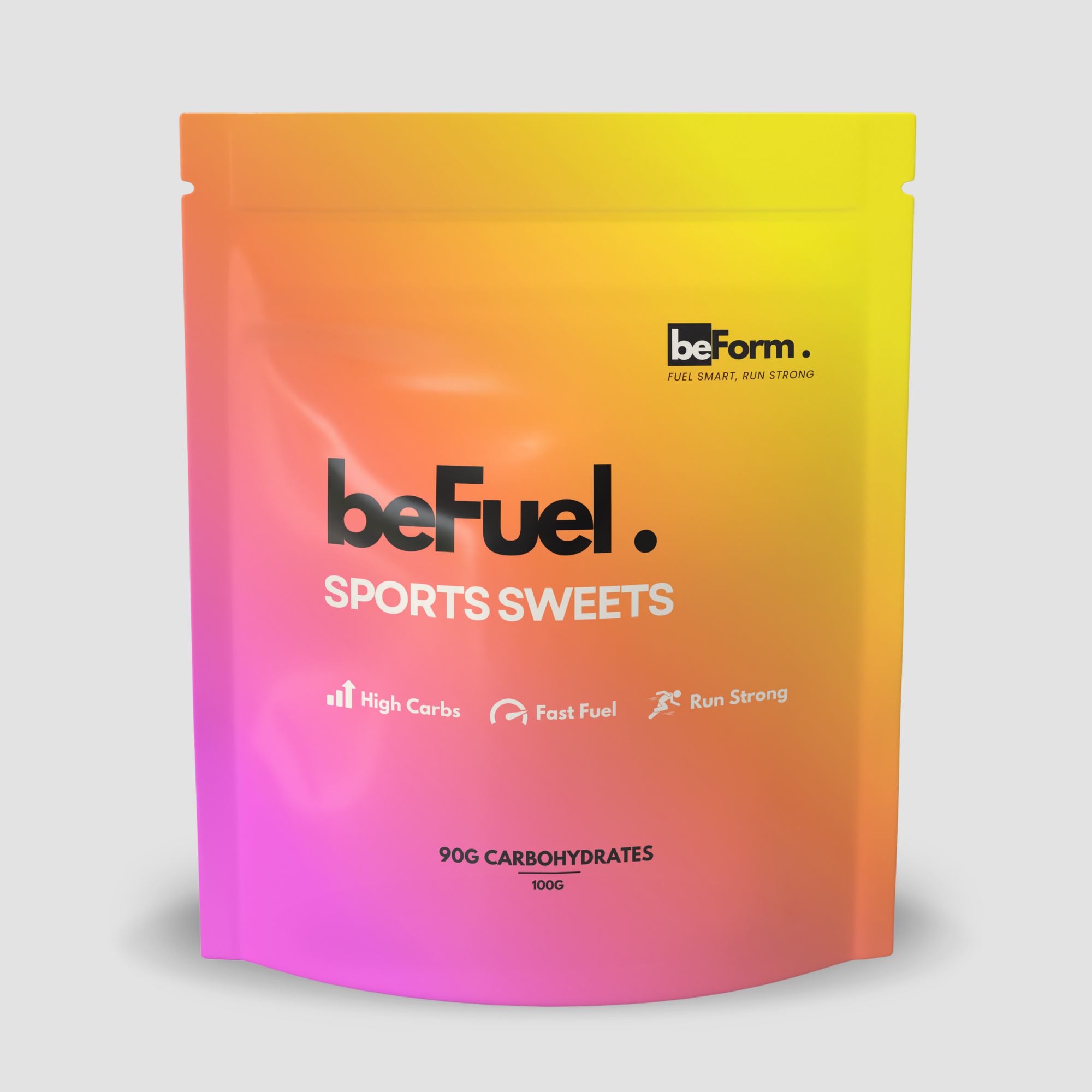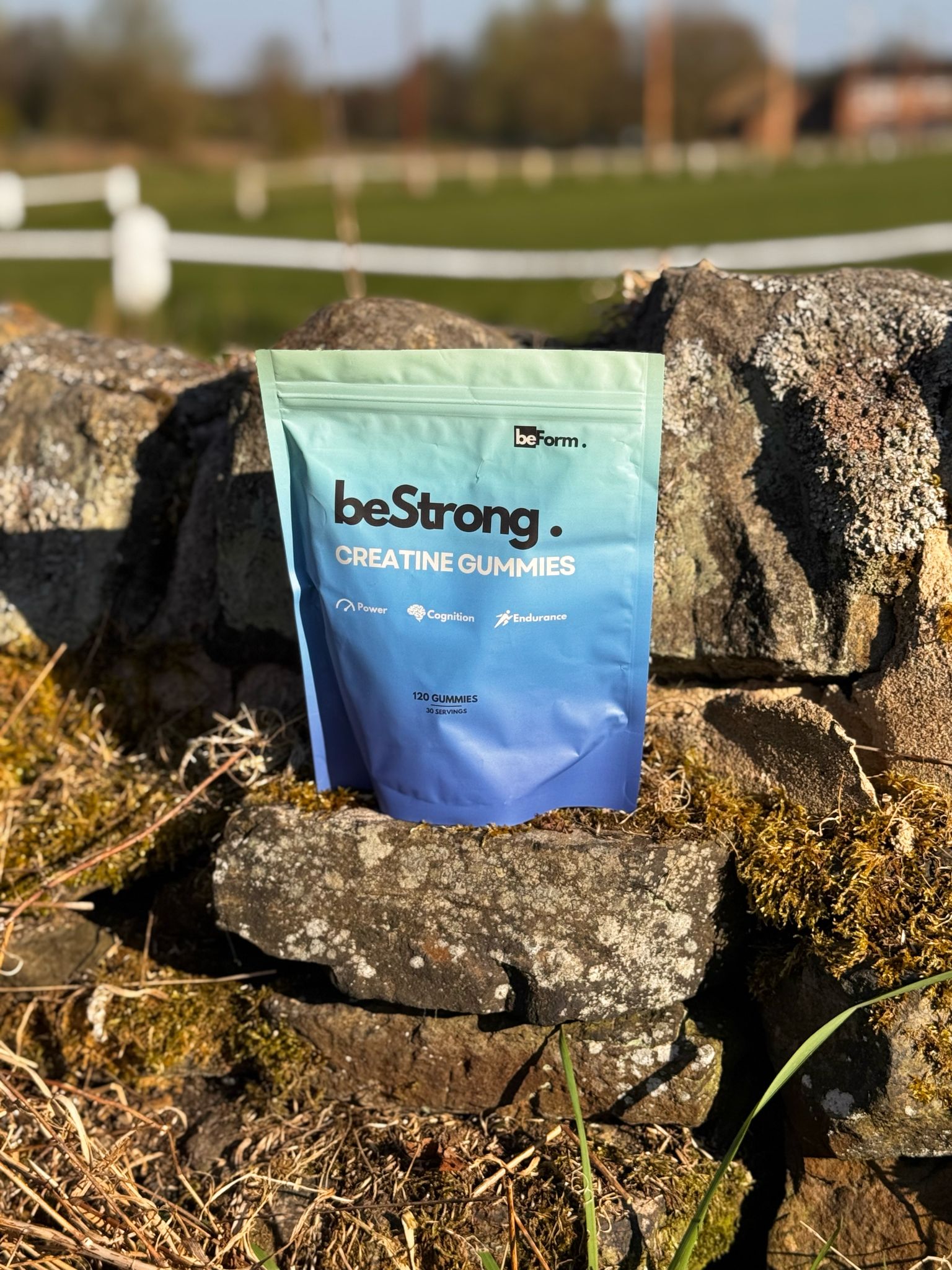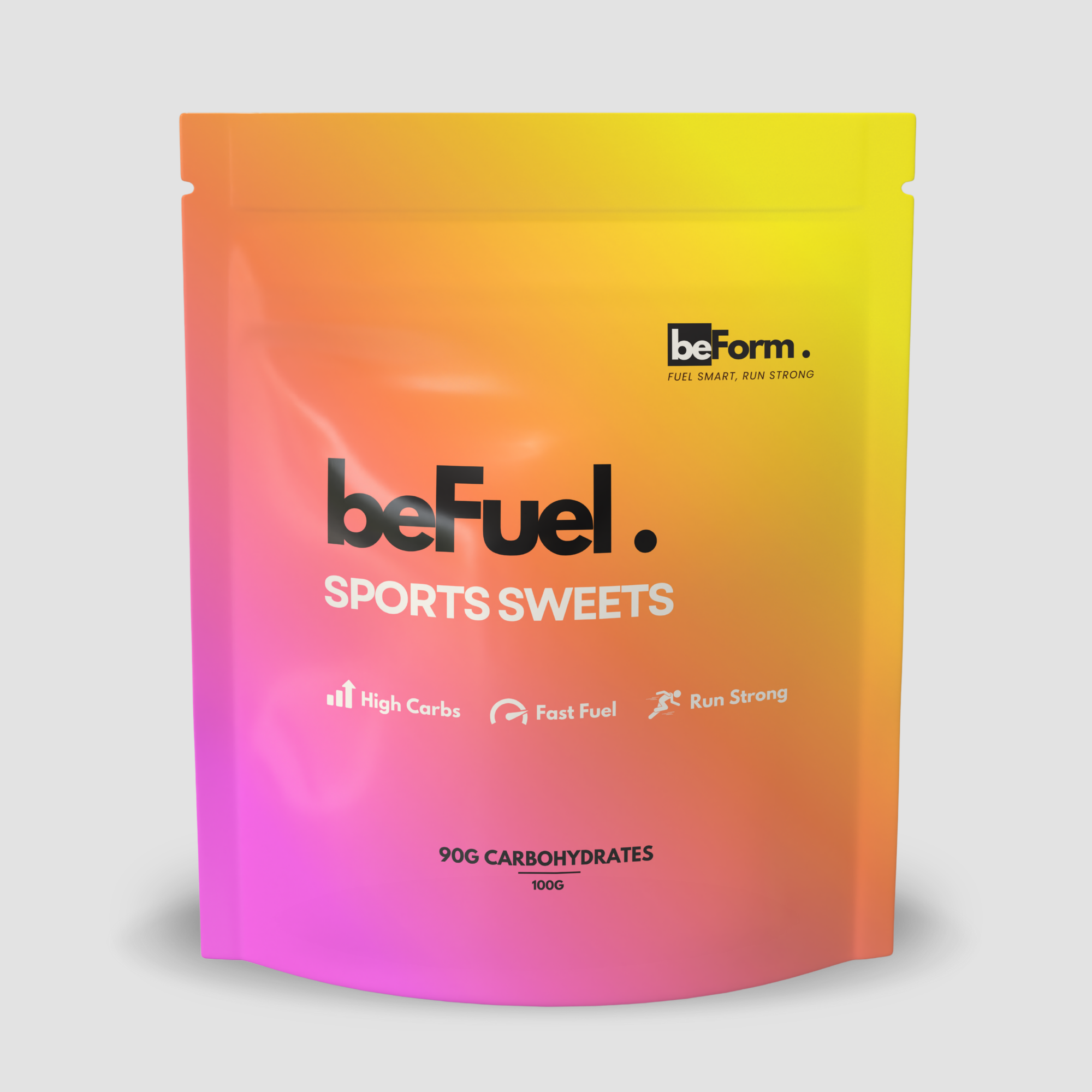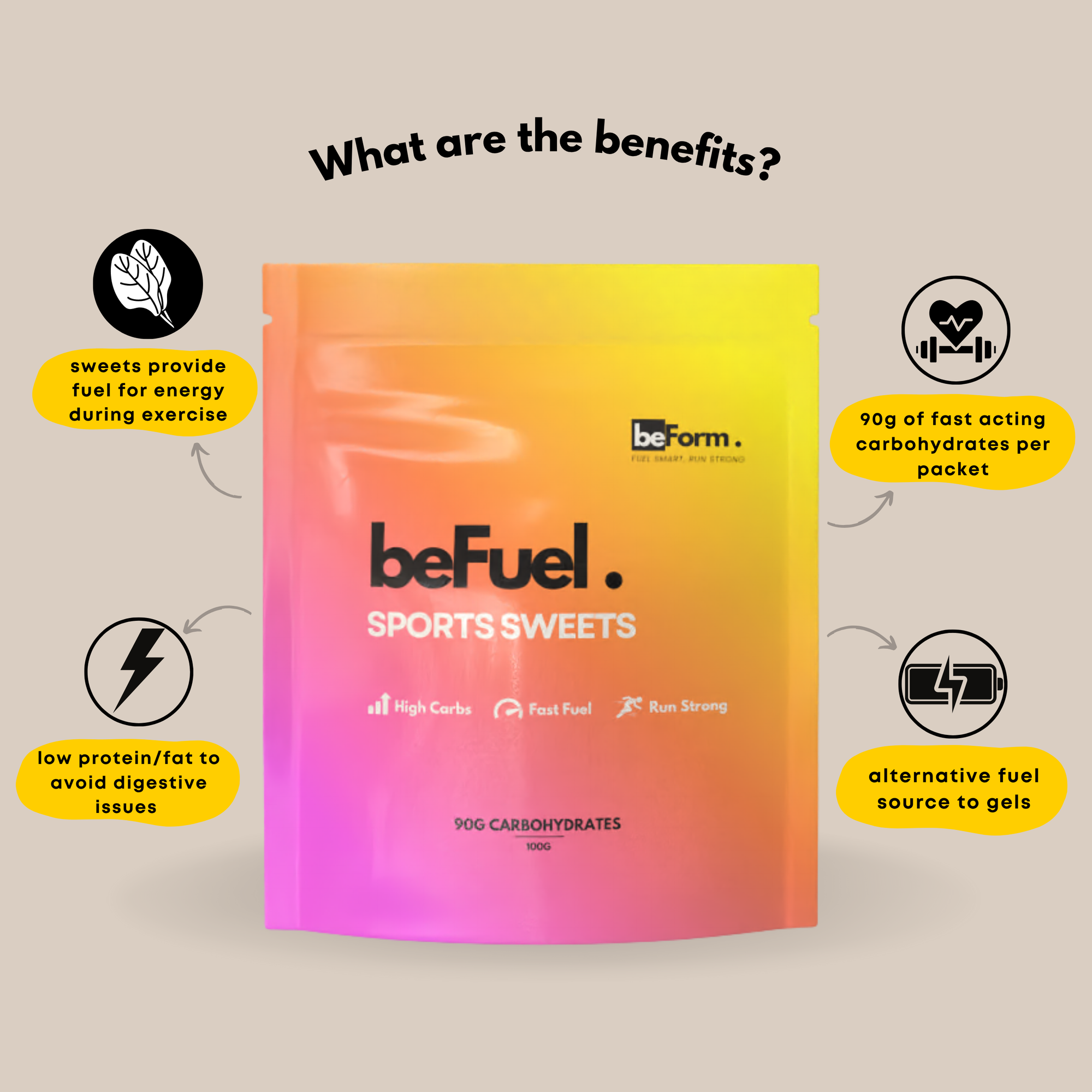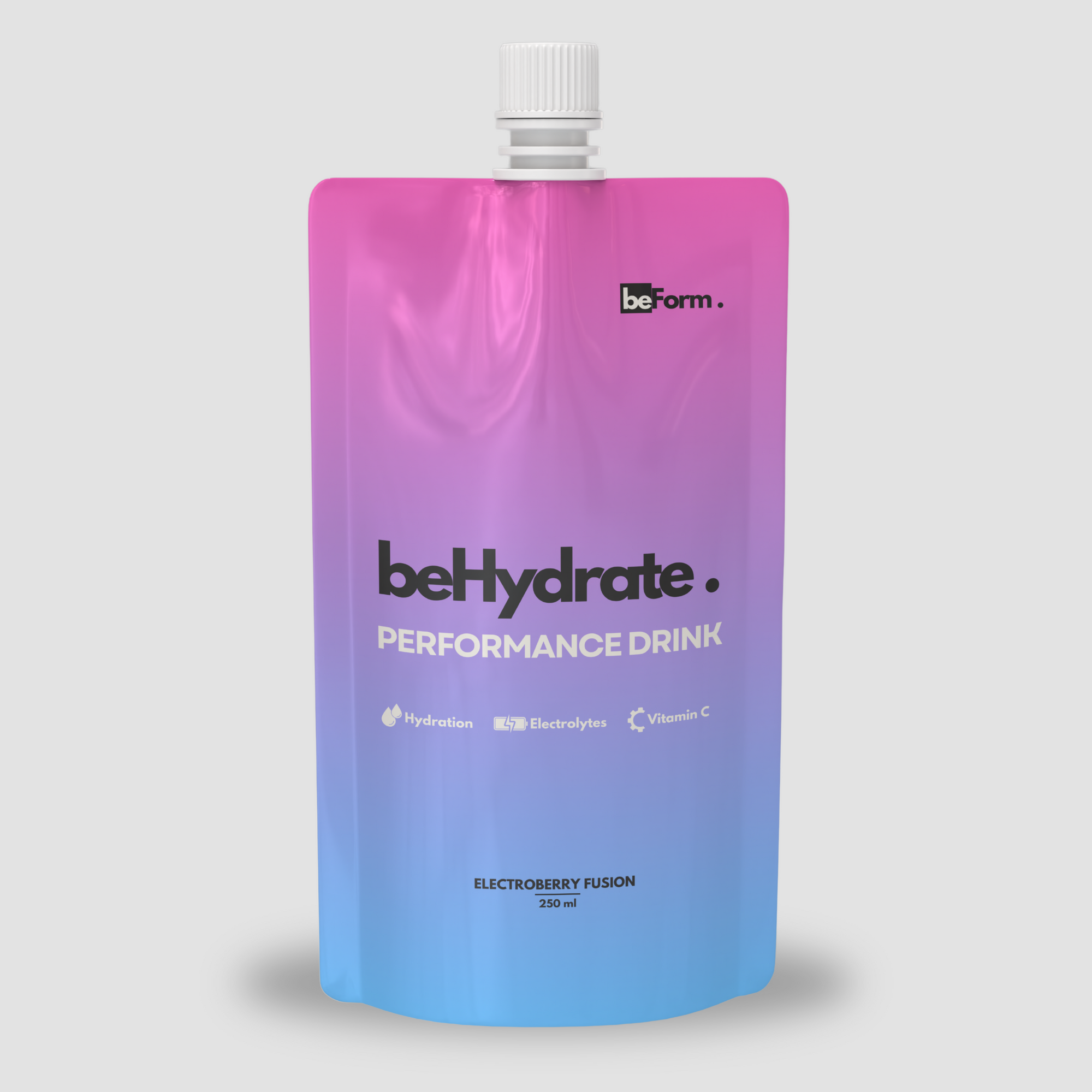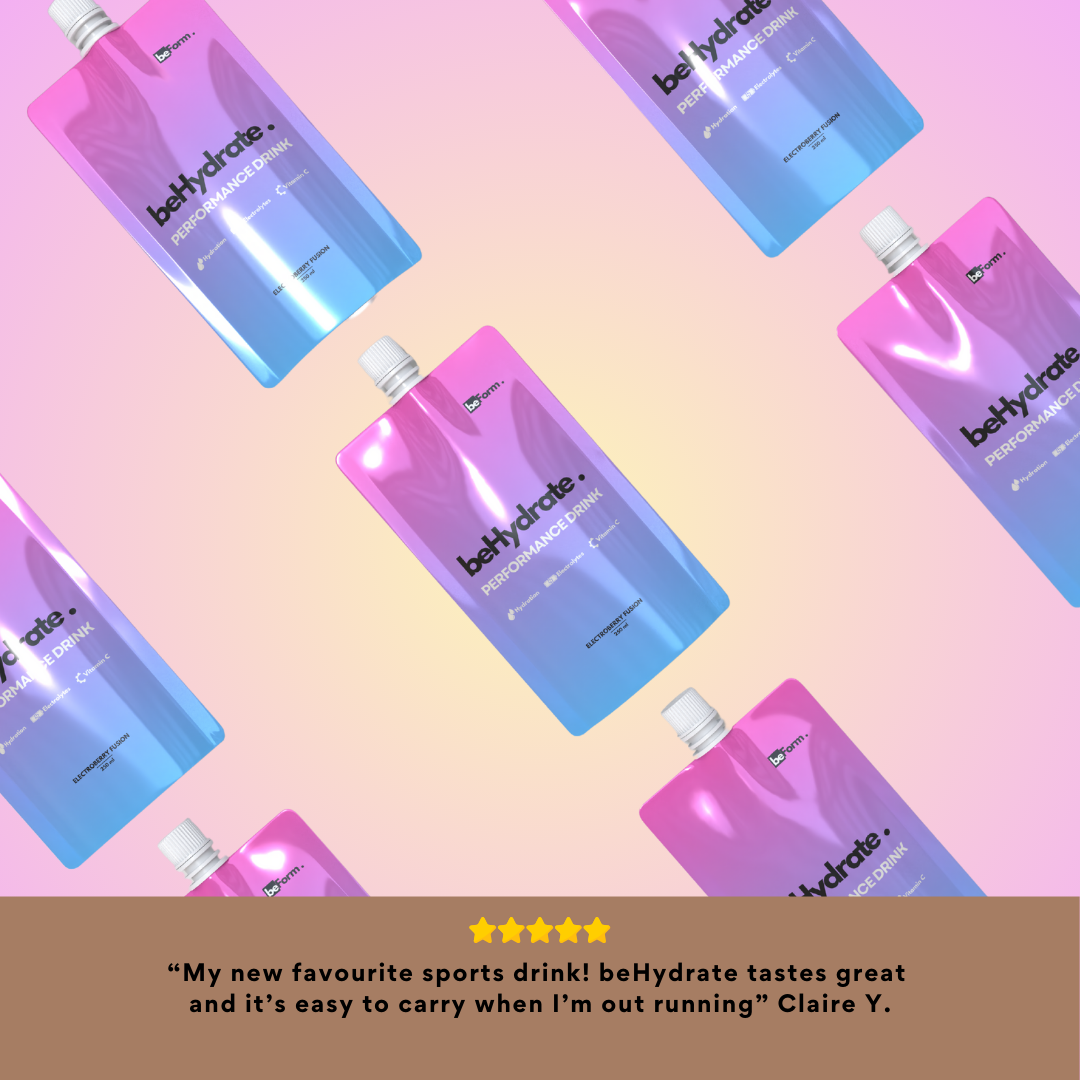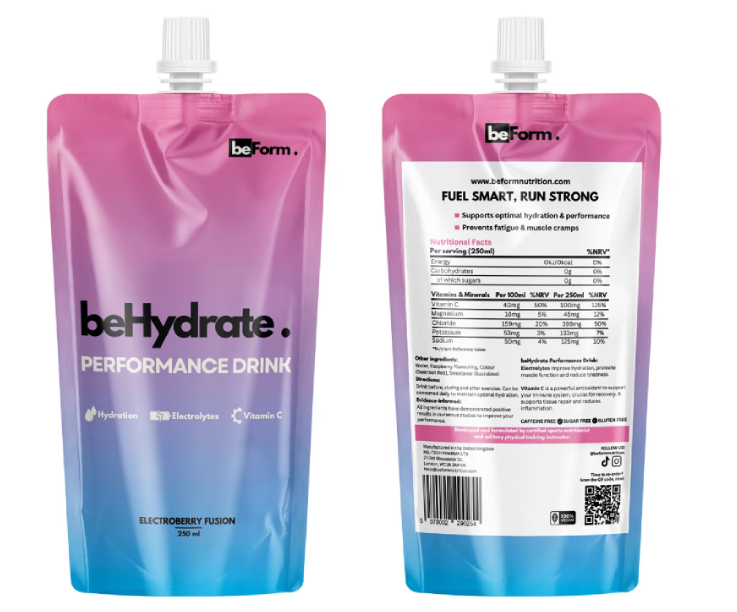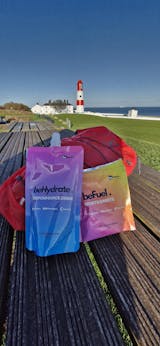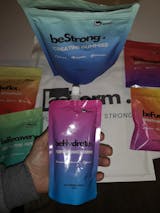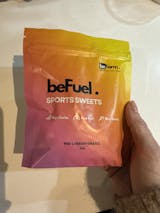Have you ever encountered that feeling during a race or long training session when your legs seem heavy and your energy seems to disappear? This may be a telltale sign of glycogen depletion, the body running out of its main source of fuel: carbohydrates.
Carbohydrates are essential in maintaining energy levels and avoiding that "hitting the wall" feeling during physical exertion.
Carbs are essential to endurance athletes' peak performance and sustained energy, yet their world can often be shrouded in myths and misconceptions, particularly information that is spread across social media.
This guide will give you a comprehensive understanding of strategic carb intake for endurance athletes, from beginner athletes starting to experienced runners looking to optimise their fueling strategy. We will delve into science as well as the practical approaches so you can unleash your endurance potential!
Fuel your runs!
1. Understanding Carbs: The Basics
Carbohydrates are organic compounds that supply energy to our bodies in various forms, from simple sugars to complex starches.
Simple Versus Complex Carbohydrates: Simple carbohydrates found in fruit and refined sugars provide quick energy boosts while complex carbs found in whole grains, vegetables and legumes take longer to break down and release energy steadily over time.
Glycemic Index (GI) and Load (GL): The Glycemic Index (GI) ranks carbohydrates according to how quickly they raise blood sugar levels; high-GI foods cause rapid spikes, while the lower GI foods cause gradual rises.
Glycemic Load (GL), however, considers both factors when providing an accurate picture of food's impact on blood sugar. Having this knowledge at your disposal will enable you to optimise your fueling strategy more effectively.
Understanding the Glycemic Index and Load can assist in making informed choices regarding which carbohydrates you ingest for optimal energy fueling strategies.
How Carbs Fuel Endurance: Your body primarily relies on carbohydrates for fuel during moderate to high-intensity exercise, breaking them down into glucose that is used for energy production.
Any remaining glucose is stored as glycogen in muscles and liver tissue as an immediate energy reserve to fuel endurance activities; however, these stores are limited and may run dry during prolonged exercise, leading to fatigue.
Debunking Myths about Carbs
"Carbs Are Bad": This statement is too simplistic. While too much refined carb consumption can contribute to weight gain and health issues, carbohydrates remain essential fuel sources for endurance athletes. All it takes to select and consume them effectively is choosing and timing your intake strategically.
"All carbohydrates are created equal": As previously discussed, different kinds of carbs have different impacts on both blood sugar and energy levels, so for optimal performance, we advise choosing complex carbs as your main fuel source and only turning to simple ones as quick energy boosts when necessary.
"Low-carb diets are better for endurance": While some (actually, very few) athletes benefit from following keto diets (low-carb, high-fat diets) for endurance sports performance, such diets require considerable adaptation time and may not suit everyone. A balanced approach with adequate carb intake would usually be preferable.
2. Carb Loading: Optimising Glycogen Stores
Are You Prepping for a Big Race? Carb Loading May Be Your Solution.
Carb loading is a strategy used to boost glycogen stores in muscle and liver before an endurance event by significantly increasing carb intake in the days before an event and "supercompensating" your glycogen stores, creating an ample fuel reserve on race day.
Carb loading can be especially beneficial to athletes participating in events lasting over 90 minutes, such as marathons, triathlons, long-distance cycling races or ultra-endurance events.
How to Carb Load Effectively: Typically, carb loading involves depleting glycogen stores through intense exercise and low-carb dieting before loading up with carbohydrates through gradual increases.
Unfortunately, this approach can be rather stressful on the body; modified approaches involving gradually increasing carb consumption without depletion are often more preferred.
For example, consuming 8-10 grams per kilogram of bodyweight every day before an event may help. Typical examples might include pasta, rice, potatoes, bread and fruit in your carb-loading plan.
Potential Downsides and How to Prevent Them: Carb loading may lead to temporary water weight gain, which may feel uninvited but should be considered normal and shouldn't cause concern.
Consuming large quantities of carbohydrates may cause bloating, gas, or digestive issues. To reduce these issues, select easily digestible carb sources like pasta instead of high fibre foods in the days leading up to your event.
Before racing, athletes in starting positions demonstrate the significance of fueling strategies such as carb loading for endurance events.
3. Fueling for Exercise: Sustaining Energy Levels
Fueling during exercise helps replenish glycogen stores and prevent depletion, helping you to maintain pace and performance levels.
There are various options for fueling during exercise, each offering unique advantages and disadvantages. Gels may be convenient and easy to consume, but they may cause stomach upset for some people.
Chews offer similar convenience but in a solid texture, drinks provide both carbohydrates and hydration benefits, yet can be bulky to carry around.
Real food options like bananas, dates or energy bars provide natural sources of fuel that may take more effort to digest during intense physical exercise.
As a general guideline, during activities lasting longer than 60-90 minutes, you should consume 30-60 grams of carbohydrates every hour. That said, research shows that athletes who train their gut and fuelling strategies may be able to reach 120g per hour.
When I run a marathon, I try to hit 3 gels per hour and sip my beHydrate sports drink.
For longer or more intensive activities, you may need to increase this amount; test various carb sources and quantities during training to find out what works best for you.
At training runs and rides, practice carrying and consuming your chosen fuel source. Consider using a fuel belt, hydration pack or cycling jersey pockets. Don't experiment on race day; always practice your fueling strategy beforehand in training runs/rides to make sure your body can adapt.
TOP TIP! If you take a creatine supplement such as our beStrong creatine gummies, the uptake of creatine into the muscles is increased when they are consumed with a carbohydrate food or drink source.
Fueling Strategies
Pre-Workout (1-2 hours before): Breakfast should consist of oatmeal with berries and nuts, whole-wheat toast with avocado, banana with peanut butter.
During Workout (every 45-60 minutes): Energy gels, chews, sports drinks, small banana slices or dates should be consumed regularly as fuel for physical exertion.
Post-Workout (within 30-60 minutes of finishing their workout): Recover with a fruit and protein powder shake, a bagel with peanut butter and a bowl of oatmeal with berries for breakfast.
4. Post-Exercise Recovery: Replenishing Glycogen Stores
Replenishing glycogen stores after exercising is essential to recovery and preparation for future training sessions. The "anabolic window" refers to the timeframe immediately following exercise when your body is most open to receiving nutrients; aim to consume carbohydrates within 30-60 minutes after finishing your workout session.
High glycemic index foods such as white rice, potatoes or sports drinks can quickly replenish glycogen stores following physical exercise.
Combining carbohydrates and proteins can further stimulate glycogen resynthesis and muscle repair. For instance, combining fruit-infused protein powder, peanut butter, or oatmeal is are excellent choice after training sessions to replenish glycogen stores quickly.
One Reddit user recommended the pea protein bulk section as an affordable yet effective protein source.
After a long run, say a marathon, I usually drink about 500ml of chocolate milk, and once that has settled, I will grab some 'fish & chips' or a burger and fries.
5. Reddit Insights: Real-World Experiences and Tips
Let's see what the Reddit community thinks about carb intake for endurance athletes. A quick search through subreddits like r/running, r/cycling and r/triathlon provides us with plenty of insight and experiences related to carbohydrate consumption.
Many users inquire about the optimal types and quantities of carbs to ingest during various workouts and how best to prevent stomach issues. Some athletes swear by certain brands of gels or chews while others rely on real food options - all while stressing the importance of experimentation in finding what suits your individual needs best.
Reddit can be an invaluable source of information, but users must exercise critical evaluation when receiving advice found there. Every individual's body varies, and what works for one may not work for another, as noted by one user on Reddit.
People tend to overcomplicate things, but it doesn't have to be this complex. Eat real food, move your body regularly and drink water.
Solid Advice!
6. Expert Recommendations for Tailoring Your Carb Strategy
An effective carb strategy should be tailored specifically to each person. A sports nutritionist or dietitian can offer guidance regarding carb intake based on your goals, training schedule and body composition.
Consider your training volume and intensity, body weight and composition, metabolic rate and individual energy needs when calculating carb needs.
As you train more often, you will require more carbohydrates to fuel workouts and recover effectively. Larger athletes tend to require more carbohydrates than smaller athletes, while individuals with faster metabolisms may require additional carbohydrates in order to keep energy levels consistent.
When creating a personalised carb intake plan that meets individual needs and helps reach performance goals, working with a professional is invaluable in investing in both performance and wellbeing.
7. Common Mistakes to Avoid
Under-fueling can result in fatigue and reduced performance, while over-feeding may cause stomach upset and weight gain.
Pay attention to how your body responds to various types and amounts of carbohydrates; practice your fueling strategy during training to minimise surprises on race day. While processed food may seem convenient, many lack essential vitamins.
Focus on eating whole, unprocessed carbohydrate sources whenever possible for maximum energy production and optimal performance; remember also to drink enough fluids before, during, and post exercise for optimal hydration!
Be mindful of what constitutes "healthy." As one Reddit user noted, one definition could include eating only fruits and vegetables as healthy options.
As there is no set definition for "healthy" or "unhealthy," what constitutes healthy or unhealthy food depends entirely upon your requirements and tastes.
Many commercial juice drinks may appear healthy; however, many contain hidden sources of sugar that should be monitored. Always read labels carefully to be aware of what's entering your body.
8. Conclusion
Carbohydrates are essential fuel sources for endurance athletes. By understanding basic carb metabolism principles, using effective fueling strategies to load and refuel carbohydrates as needed and avoiding common errors, you can maximise performance and meet endurance goals more successfully.
Remember, the key is experimentation to find what best meets your individual needs. Consult with a sports nutritionist or dietitian if necessary for personalised guidance, share your experiences with other runners in your community, and continue learning!
Get out there and fuel up your endurance!
Please share any insight or advice on our Facebook page so we can all work together and overcome this obstacle and enjoy running to its fullest.

